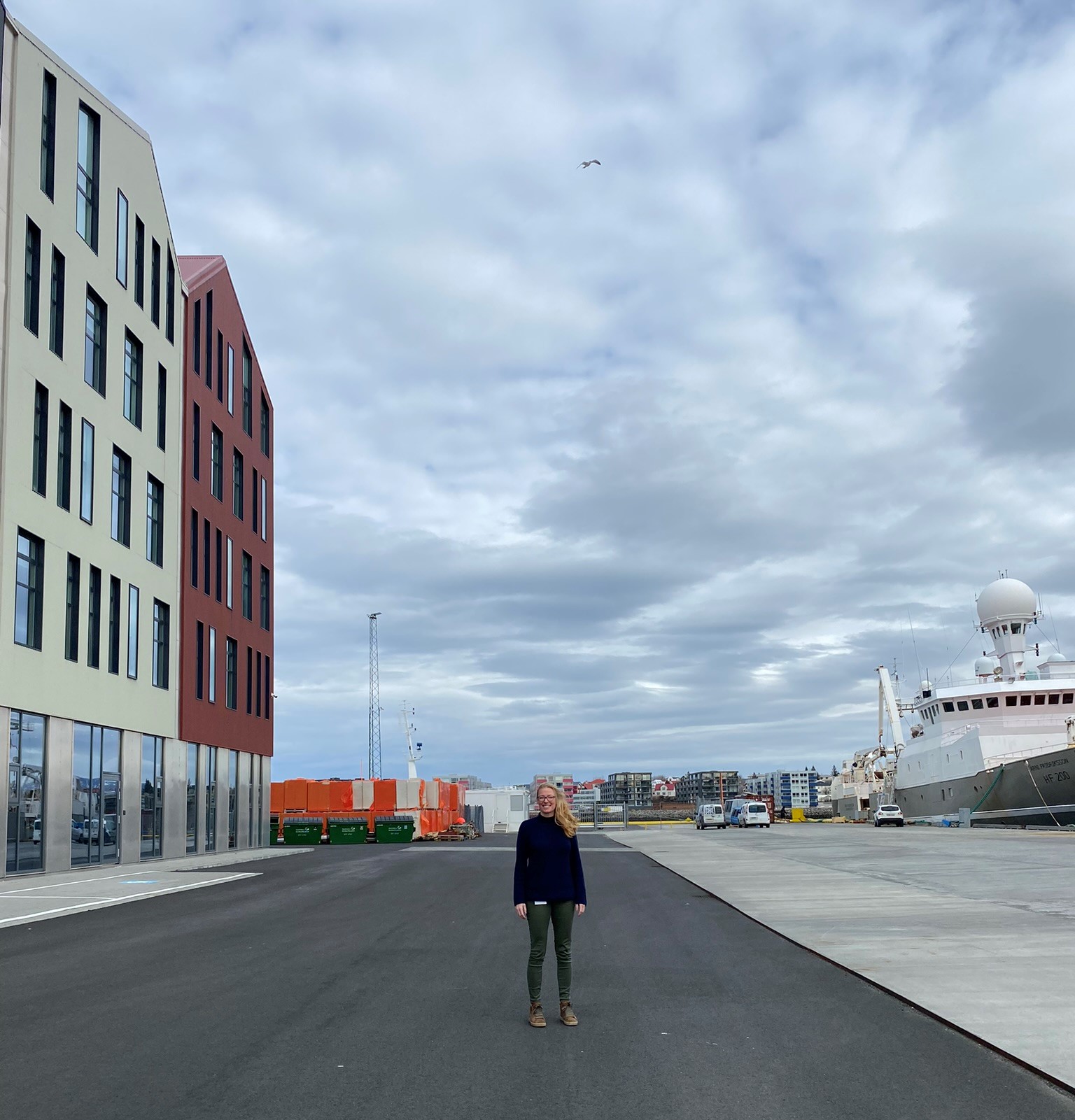ROCS collaboration with MFRI
ROCS postdoc and marine biologist Kirstine Drum has relocated to Iceland to collaborate with the Marine and Freshwater Research Institute of Iceland, MFRI, for the next six months but the collaboration will further our understanding of the composition of phytoplankton under climate change. She is currently preparing for a cruise around Iceland in May but her work at the institution also involves generating barcodes to identify species via eDNA.
“First of all, MFRI has a fantastic database. They have done extensive monitoring on the ocean around Iceland, both on phytoplankton communities and have also closely monitored stations around Iceland for example for temperature, pH, and nutrients”, Kirstine says. “Their monitoring over the years encompasses all that we are interested in and helps a great deal with our correlations to why specific species are present here”. Kirstine has moved to Iceland with her family but the timing of their relocation coincides with a two-week research cruise in May where scientists, ROCS collaborators and postdocs will gather data at various stations around Iceland. “The data collection that interests me the most concerns the identification of phytoplankton species”, says Kirstine and adds that in addition to her impending data collection, MFRI has decades worth of similar data where they have monitored available species and registered dominating varieties. “I will also take samples from depth to pinpoint what species are actually sinking because we want to go into the sediment and back in time”. The samples will be analysed using traditional methods such as counting species through a microscope but also through the analysis of eDNA, a hallmark feature of the ROCS project, but in the ROCS project, eDNA analysis serves to identify the ocean’s past biodiversity/composition of phytoplankton and plays a pivotal role in identifying how ocean, species, societies, and climate interchangeably relate to one another by viewing historical evidence.

Identification via eDNA requires a vast database of existing barcodes to match with collected samples. “At the moment there are still some DNA barcodes missing for me to build a reliable profile”, she says. Kirstine’s plan is to collect water samples from the stations visited on the cruise, retrieve some of the phytoplanktons in the samples. Special attention will be paid to species that don’t already exist in the DNA reference databases and species that are of particular interest such as those endemic to the sout, east, west, and north regions of Iceland, respectively. After retrieval the phytoplanktons are grown in culture until they reach a community that supports the generation of a solid barcode. “Phytoplanktons are also easier to identify if there are many of them, because identification down to species level of these guys can be complex as there are very small details that we have to get and that have to be considered”, Kirstine notes. “So, it is nice to have many of them to investigate”. The barcodes generated from the research will be entered into a database for future use.
Collaboration of this kind is imperative for the ROCS project, as Kirstine points out but besides working with her own collection she will also have access to data collected by MFRI over an extensive period of time. This summer she will also be working with ROCS postdoc, paleoceanographer and marine micropaleontologist, Rebecca Jackson on ocean sediment surface cores which will offer undisturbed samples of the ocean sediment’s top layers. And Kirstine also looks forward to further interdisciplinary collaborations: “We will hopefully also work with the postdocs from the social sciences and humanities in ROCS,” she says, “so we can find some nice stories together”.
